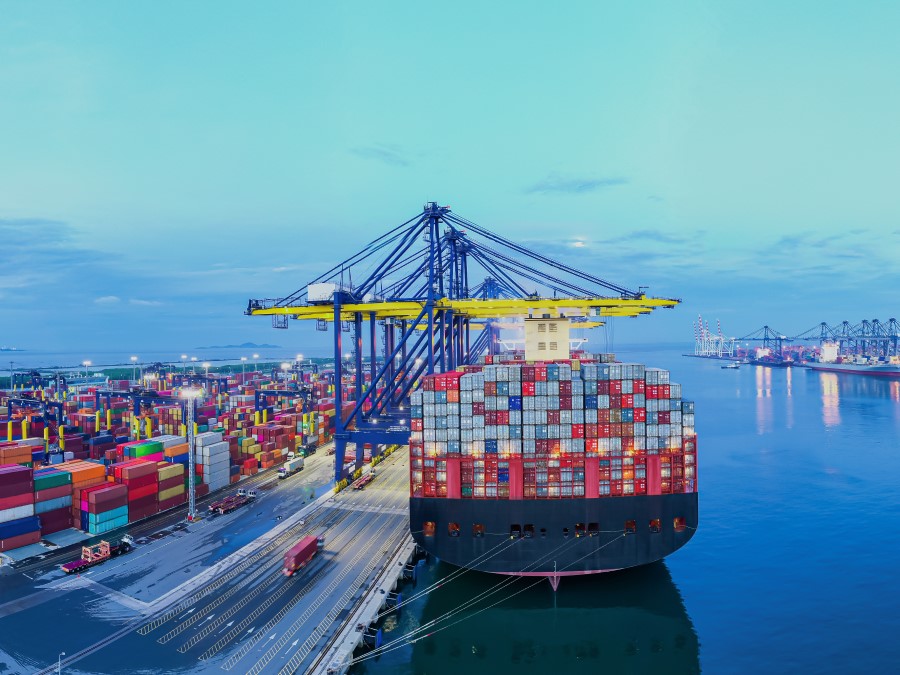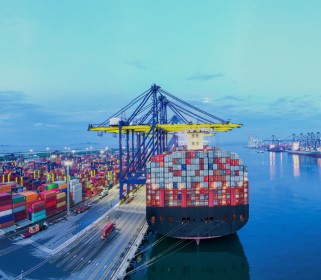
Singapore is cementing its position as a leading maritime arbitration hub, with new data revealing a dramatic surge in cases even as geopolitical tensions reshape global shipping and trade patterns.
According to a report published by law firm HFW, the Singapore Chamber of Maritime Arbitration (SCMA) recorded 95 new case references in 2024, a 73 percent year-over-year increase, and a 112 percent increase over its five-year average caseload.
This growth trajectory is unfolding against a backdrop of Singapore’s steady expansion in the global maritime arbitration market. The city-state’s maritime arbitration caseload has grown from approximately five percent of London’s volume in 2022 to nine percent in 2024. Over the past 15 years, Singapore has progressively increased its share of global maritime arbitration, sometimes at the expense of traditional hubs like London and New York.
“When [UK law firm] Hill Dickinson established its Singapore office in 2009, approximately 95 percent of our arbitration work related to London arbitrations; today, that figure is closer to 50 percent,” reveals Peter Doraisamy, group managing partner at PDLegal, which operates in a formal law alliance with Hill Dickinson.
As Singapore’s market share expands, law firms are adapting their strategies to meet growing demand. For example, Bazul Ashhab, managing partner and head of dispute resolution at Oon & Bazul, explains that the firm’s shipping arbitration practice “was built around Singapore’s rise as a global maritime hub,” with the firm scaling its team through targeted recruitment of senior disputes lawyers and closer collaboration with technical and industry experts. The firm has also deployed a dedicated strategy analyst to track dispute triggers in shipbuilding and financing, allowing it to “anticipate developments before they reach the tribunal stage.”
These preparations are particularly timely given the escalating Sino-U.S. trade war, which is creating new pressures on maritime contracts, particularly in shipbuilding and vessel financing. “With shifting geopolitics, sanctions are increasingly driving contract cancellations and supply-chain breakdowns,” Bazul observes.
For clients navigating these tensions, dispute resolution clause design has become significantly more complex. “Enforcement exposure, sanctions, and counterparty domicile now shape clause design alongside governing law and seat,” says Bazul.
He often recommends hybrid structures combining sector-specific rules with a neutral, enforceable seat such as Singapore to balance efficiency, neutrality, and enforceability.
Doraisamy emphasises that there is no one-size-fits-all solution in this environment. “Where a non-Chinese domiciled party contracts with a Chinese domiciled counterparty, a Hong Kong-seated arbitration before a qualified arbitral institution such as the HKIAC is often prudent,” he explains, noting this permits interim relief from mainland Chinese courts in support of arbitration.
However, he adds that hybrid arrangements are also increasingly common, such as a Hong Kong-seated arbitration applying the LMAA Rules, with hearings in Singapore under English law, depending on the parties’ commercial needs.
As Hong Kong and Singapore compete for trade-war-related maritime disputes – with Hong Kong ranked joint-second globally as a preferred arbitration seat alongside Singapore – the question of competitive differentiation has become increasingly important. For Bazul, Singapore’s neutrality has emerged as a key differentiator.
“Singapore’s neutrality has become its defining strategic advantage,” Ashhab states. “Amid U.S.–China tensions, parties want a forum independent of major power blocs yet anchored in strong judicial infrastructure.”
Doraisamy, however, views the competition between these jurisdictions through a complementary lens. What distinguishes his Singapore practice, he argues, is “not merely geography but depth of sectoral expertise,” with the firm continuing to invest in marine, commodities, offshore and energy, insurance, and asset and trade finance sectors.
This focus on sectoral specialisation reflects a broader strategic choice in how firms position themselves in an evolving market. “We have observed a trend toward lawyers presenting themselves primarily as international arbitration specialists, rather than sector specialists,” Doraisamy notes.
However, the HFW report’s observation of a shift “from dominance by a few traditional hubs to a more even global distribution” of maritime arbitration reflects a fundamental transformation in how and where disputes are resolved.
“The redistribution of maritime arbitration from a few traditional hubs toward a more globalised landscape is unmistakable,” Doraisamy says, noting that while earlier Australian practitioners may have joked that “international arbitration would never take off in Australia – we all like travelling to London too much!”, the current environment proves otherwise.
